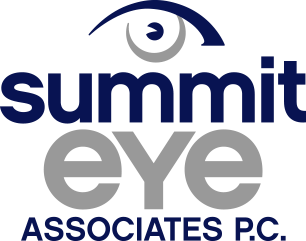Arrival
Please arrive 15 minutes before your appointment to check in and complete your paperwork. New patients click here for Patient Forms, returning patients just need to fill out the yearly medical questionnaire. If you are having a comprehensive exam, please plan for one and a half hours to complete all of the testing, dilation, and doctor exam.
Exam
Our certified ophthalmic staff will discuss with you the reason for your visit and any concerns you may have. They will perform the special testing necessary to prepare you for the doctor. Your doctor will then thoroughly examine your eyes and discuss their findings. Comprehensive exams include a refraction to measure your best vision. From this test, you will be given a new glasses prescription.
Other common testing is described below:
Refraction
This is the test your doctor uses to determine your exact eyeglasses prescription. During a refraction, the doctor puts the phoropter in front of your eyes and shows you a series of lens choices. He or she will then ask you which of the two lenses in each choice (“1 or 2,” “A or B,” for example) make the letters on the wall chart look clearer.
Based on your answers, your doctor will determine the amount of nearsightedness, farsightedness and/or astigmatism you have, and the eyeglass lenses required to correct these vision problems (which are called refractive errors).
Tonometry (Glaucoma Testing)
Tonometry is the name for a variety of tests that can be performed to determine the pressure inside the eye. Elevated internal eye pressure can cause glaucoma, which is vision loss due to damage to the sensitive optic nerve in the back of the eye. The most common method used for tonometry is the “air puff” test where an automated instrument discharges a small burst of air to the surface of your eye. Another popular way to measure eye pressure is with an instrument called an applanation tonometer, which is attached to a slit lamp and a bright-blue glowing probe manually measures the intraocular pressure. Since glaucoma is often the result of an increase of pressure inside the eye, these are important tests for ensuring the long-term health of your eyes.
Pupil Dilation
A comprehensive exam typically includes the use of dilating drops. These medicated eye drops enlarge your pupil so your doctor can get a better view of the internal structures in the back of the eye. Dilating drops usually take about 20 minutes to start working. These effects can last several hours.
Depending on your particular needs, your eye doctor may perform additional tests immediately or schedule another appointment to be performed at a later date.
Slit-lamp Examination
The slit lamp is an instrument that the eye doctor uses to examine the health of your eyes. The slit lamp gives your doctor a highly magnified view of the structures of the eye, including the lens behind the pupil, in order to thoroughly evaluate them for signs of infection or disease. With the help of hand-held lenses, your doctor can also use the slit lamp to examine the retina (the light-sensitive inner lining of the back of the eye.)
Depending on your particular needs, your eye doctor may perform additional tests immediately or schedule another appointment to be performed at a later date.
Optical
When your exam is over, we invite you to browse in our Optical Shop. Our opticians will be happy to make any needed adjustments on your current glasses, tightening screws and checking for any lens defects or help restyle you in a brand new pair. We have a wide selection of frames and lens options to fit everyone’s budget.
Departure
At the end of your visit we will collect your insurance copay as well as payment for any services not covered by insurance.
Most often when you have a comprehensive exam your eyes are dilated. Dilation causes you to be very light sensitive for several hours and decreases your near vision temporarily. We will provide you with a courtesy pair of disposable sunglasses for your comfort. Most of our patients drive themselves home after their visit, however if you feel concerned we encourage you to bring a driver.

